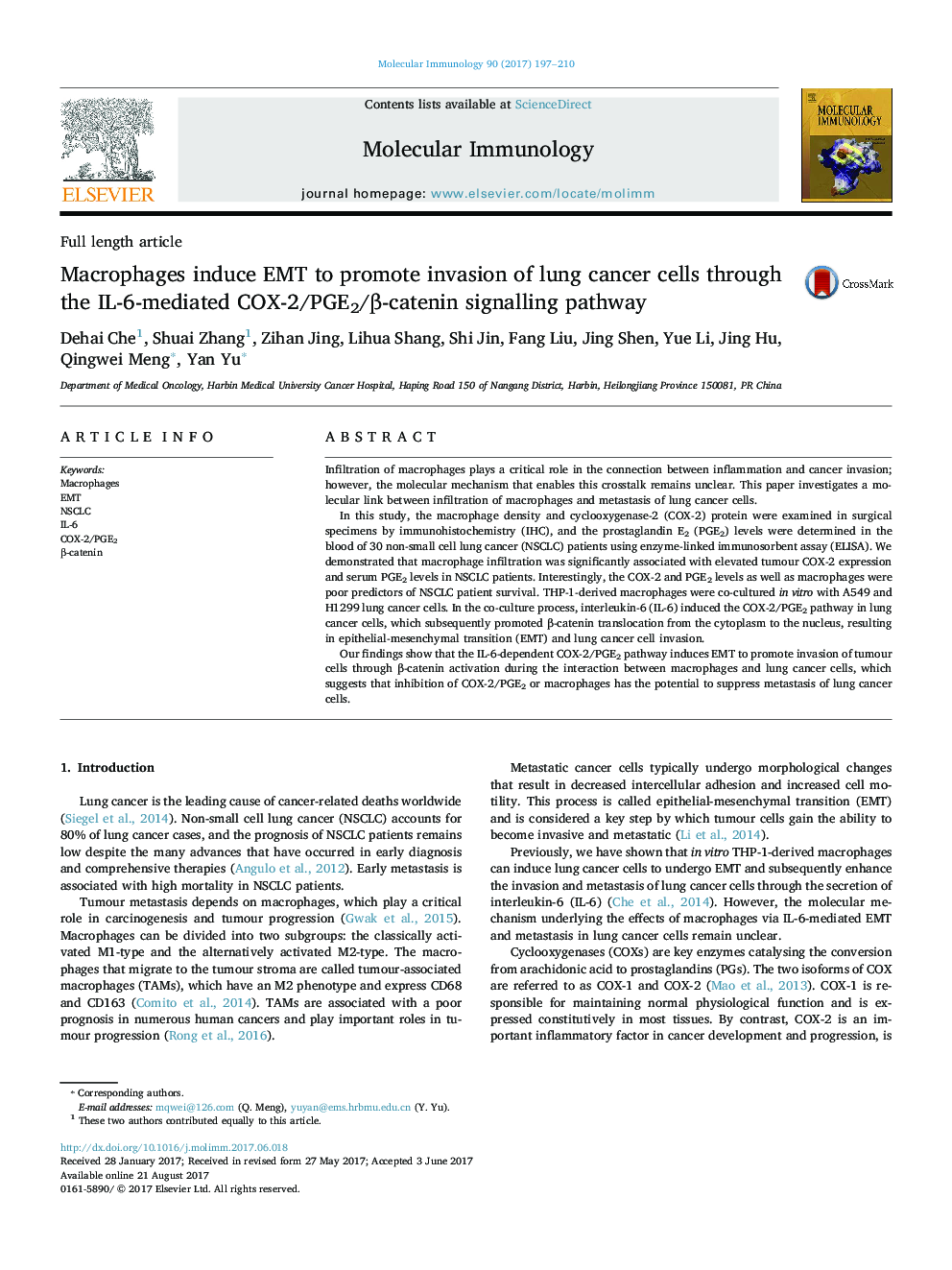| Article ID | Journal | Published Year | Pages | File Type |
|---|---|---|---|---|
| 5591895 | Molecular Immunology | 2017 | 14 Pages |
â¢Macrophage density, COX-2 expression and PGE2 levels predict a poor prognosis for patients with NSCLC.â¢THP-1-derived macrophages activate lung cancer cells and upregulate the expression of COX-2 and secretion of PGE2 through an IL-6-dependent mechanism.â¢PGE2 induces EMT and invasion of lung cancer cells via activation and translocation of β-catenin from the cytoplasm to the nucleus.â¢Inhibition of macrophages and COX-2/PGE2 in lung cancer cells can improve cancer therapy.
Infiltration of macrophages plays a critical role in the connection between inflammation and cancer invasion; however, the molecular mechanism that enables this crosstalk remains unclear. This paper investigates a molecular link between infiltration of macrophages and metastasis of lung cancer cells.In this study, the macrophage density and cyclooxygenase-2 (COX-2) protein were examined in surgical specimens by immunohistochemistry (IHC), and the prostaglandin E2 (PGE2) levels were determined in the blood of 30 non-small cell lung cancer (NSCLC) patients using enzyme-linked immunosorbent assay (ELISA). We demonstrated that macrophage infiltration was significantly associated with elevated tumour COX-2 expression and serum PGE2 levels in NSCLC patients. Interestingly, the COX-2 and PGE2 levels as well as macrophages were poor predictors of NSCLC patient survival. THP-1-derived macrophages were co-cultured in vitro with A549 and H1299 lung cancer cells. In the co-culture process, interleukin-6 (IL-6) induced the COX-2/PGE2 pathway in lung cancer cells, which subsequently promoted β-catenin translocation from the cytoplasm to the nucleus, resulting in epithelial-mesenchymal transition (EMT) and lung cancer cell invasion.Our findings show that the IL-6-dependent COX-2/PGE2 pathway induces EMT to promote invasion of tumour cells through β-catenin activation during the interaction between macrophages and lung cancer cells, which suggests that inhibition of COX-2/PGE2 or macrophages has the potential to suppress metastasis of lung cancer cells.
